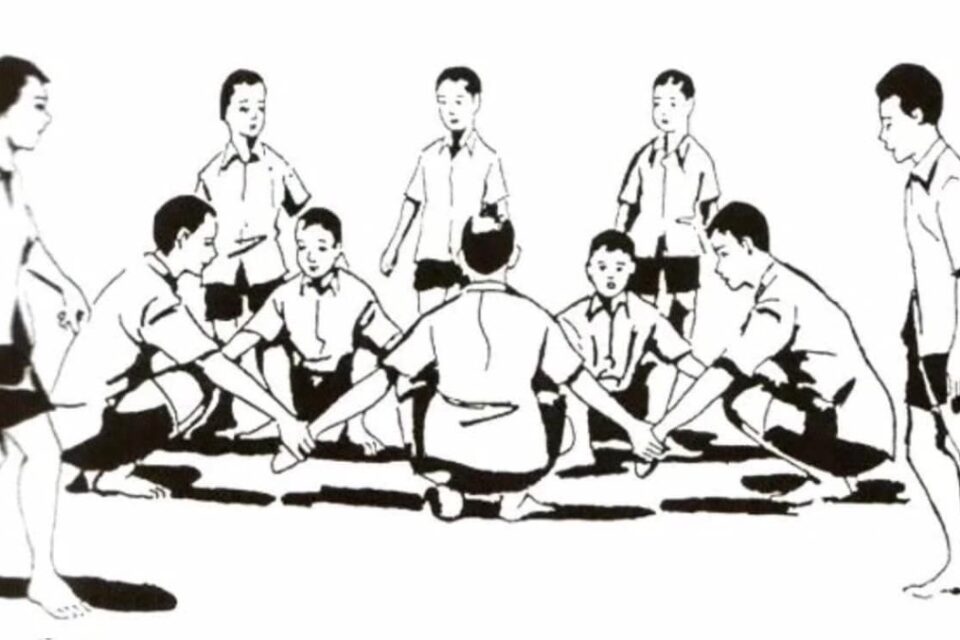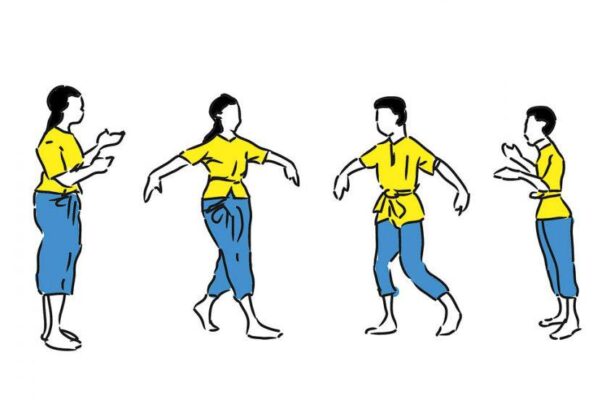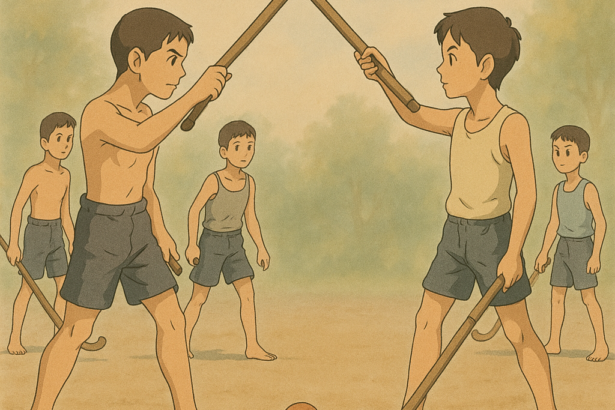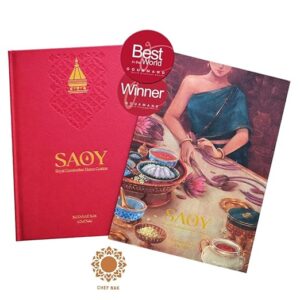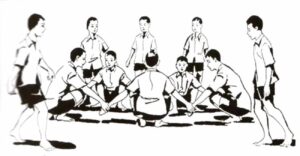
Lout An Taek or Jumping the Trap Game “ល្បែងលោតអន្ទាក់” is a popular Khmer folk game played by children and young people in their free time and at night during the Khmer New Year. This game is not only a gathering to create a happy atmosphere, but also trains them to be physically strong, have a sharp eye, be alert, and use their intelligence to protect themselves from the deception of others.
How to play this game
First, people must be divided into two groups of equal size. One group can have 5 to 6 members or more. The first team (sitting team) is required to sit down and hold hands in circle-shape as a trap, while the second team (jumping team) is required to stand around, waiting to jump into the first team’s trap. During the game, both teams are required to be careful. Before jumping into the trap, the jumping team walks around the sitting team. If the sitting team forgets, they will jump into the trap. The sitting team must raise their arms to act as a trap to intercept and protect the person jumping or falling into the trap.
And if the sitting team raises their arms to touch the jumping team’s legs, the jumping team is considered the loser and the sitting team is the winner. Then the winner team turn the role play as Jumping team and the loser team turn the role play as sitting team.
Therefore, we observe that participants in the jumping trap game must be united, cautious, and clever in protecting each of their teams.

